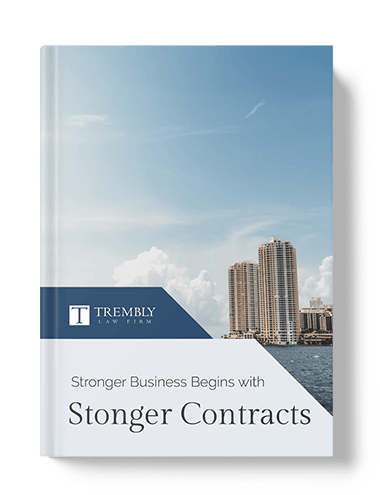Previously, we discussed the basics of the “substantial performance” doctrine in contract law. In that discussion, we saw how substantial performance functioned as a kind of excuse for an immaterial breach or imperfect performance, and that the non-breaching party was entitled to the difference in value arising from the breach. Substantial performance is just one of many ways to resolve a breach of contract. Courts have developed many different ways to provide remedies to non-breaching parties. Another remedy available is specific performance. In this post, we will go over the essential points of specific performance and discuss the types of situations in which it may be utilized by courts.
Specific Performance is a Type of Equitable Remedy
When a contract is breached, non-breaching parties may be entitled to one of two forms of relief: legal relief or equitable relief. Legal remedies are basically about damage recovery, and so the non-breaching party will recover a certain amount of money in order to rectify the breach. Equitable remedies, on the other hand, involve the court ordering the breaching party to perform a specific action of some sort, or to refrain from performing an action, or both. Specific performance is a type of equitable relief. When a court orders specific performance, the breaching party is required to carry out whatever actions are specified by the court. In many (if not most) cases, this means carrying out the contract as it was originally conceived. In other cases, it may mean that the breaching party is ordered to perform an action or actions not originally written in the contract.
Specific Performance is About Making the Non-Breaching Party Whole
The question becomes: under what circumstances will this doctrine be used? We can look at all kinds of very specific circumstances in order to give a better sense of how this doctrine might be used by courts. But, while this could be a useful approach, it’s more useful to understand the principle which underlies all contract remedies. Whenever a breach occurs, courts try to place the non-breaching party in a position which is closest to the position that party would be in if the breach hadn’t taken place. In other words, contract remedies are fundamentally about making the non-breaching party “whole,” which means demanding whatever remedy is best capable of making this happen.
If you understand and keep this principle in mind, you’ll be able to see what types of situations may call for specific performance. Specific performance is commonly used in cases involving the sale of land. The reason for this is that land is regarded as being an atypical commodity, and so it is usually not possible to fully restore a non-breaching party without ordering specific performance. Remember the case of Jacob & Youngs, Inc. v. Kent (1921), the famous example of substantial performance? If you remember this case, you may recall that the defendant requested specific performance, which means that the defendant wanted the particular brand of piping which they had originally requested in the contract. The court denied this request, and instead ruled that substantial performance was the more sensible outcome.
As a general rule, courts will lean toward a legal remedy over an equitable remedy given that monetary recovery is usually simpler to implement. Specific performance is usually difficult to obtain for a variety of reasons. If the underlying contract was unconscionable, or lacked mutuality, or consists of a personal service, or is simply too burdensome to carry out, courts will usually avoid ordering specific performance.
Contact a Top Miami Business Law Firm Today
This is just a broad introduction to the doctrine of specific performance. In the future, we will come back and discuss this concept in greater detail. Readers should have a firm sense of when this remedy may be used, and when it will likely not be used. We may come back and discuss a specific case in more detail. For now, if you have a case, or would like additional information, reach out to Trembly Law Firm today. We have a team of capable business contract lawyers who would be delighted to assist you. Call us today at (305) 431-5678.

















